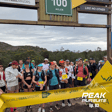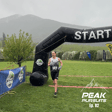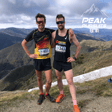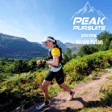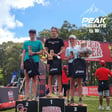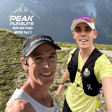
Episode 75 with Blake Turner: WMTRC Course Insights, Recovery, and Doping in Trail Running
Welcome to Episode 75 of Peak Pursuits, your go-to podcast for trail running in Australia and beyond. This week, James is hosting and is joined by Vlad and Blake Turner, both live from Spain as they prepare for the Canfranc World Mountain and Trail Running Championships.
Hear first-hand their impressions of the brutal short-course profile, the art of pacing on European terrain, and how they’re balancing training with life abroad. We also dive into recovery strategies after ultras, the recent doping controversy shaking the sport, and results from the Hounslow Classic and Surf Coast Century. Tune in for a wide-ranging conversation that blends course insights, athlete experiences, and big-picture issues in trail running.
Results:
Hounslow Classic | Surf Coast Century | Mighty Jarrah Trail Run | Whitsunday Trail Fest
***Don’t forget, use code PPP at https://bix-hydration.myshopify.com/en-au for 20% off Bix products, exclusive to PPP listeners!***
Thanks for tuning in to Peak Pursuits! Connect with us on Instagram @peakpursuits.pod to share your thoughts, questions, and your own trail stories. Until next time, keep hitting the trails and chasing those peak pursuits!
Follow Vlad: Instagram | Strava
Follow Blake: Instagram | Strava
James: Instagram | Strava | Website
Music from #Uppbeat (free for Creators!):https://uppbeat.io/t/mood-maze/trendsetter License code: K08PMQ3RATCE215R

